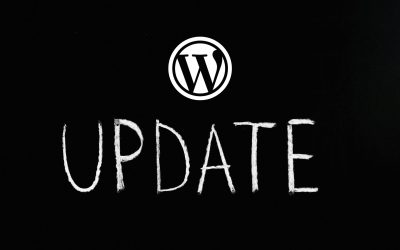At Hosting Australia, we understand the critical role that uptime plays in the success of small business websites. It’s not just about having an online presence, but also ensuring that your website is accessible and functional round the clock. In today’s digital age, where customers expect instant information and seamless experiences, downtime can have serious consequences for your business.
When your website is down, it n ot only damages your professional image but also leads to unhappy customers and potential loss of sales or leads. Moreover, downtime can negatively impact your search engine rankings and increase the risk of security breaches.
That’s why having a reliable uptime monitoring service is crucial. We offer a variety of server monitoring tools for our hosted clients, designed to ensure your website’s 24/7 online presence. With features like website performance monitoring, mobile website monitoring, Googlebot health check, page content monitoring, and 1-minute monitoring, we help you stay ahead of any potential downtime issues.
Key Takeaways:
- Web hosting for small business is essential to keep your website accessible and functional.
- Uptime monitoring helps protect your professional image and keeps your clients happy.
- Avoid losing sales or leads by ensuring your website is always online.
- By detecting hackers faster, you can safeguard your website and customer data.
- Maintain good search engine rankings by having a reliable uptime monitoring service.
The Implications of Website Downtime for Small Businesses
Website downtime can have significant consequences for small businesses, impacting their professional reputation, customer satisfaction, and overall revenue. When a website is unavailable or experiences performance issues, it can lead to frustrated customers, lost sales, and missed opportunities. Therefore, finding reliable web hosting solutions is crucial for small businesses to minimize the risk of downtime and ensure a seamless online experience for their customers.
“Downtime is every business owner’s worst nightmare. It not only affects your sales and revenue but also damages your credibility and customer trust.”
One of the key considerations for small businesses when choosing a web hosting provider is reliability. Investing in cheap web hosting options may seem enticing from a cost perspective, but it often comes at the expense of uptime and customer support. Opting for top web hosting providers that offer reliable services and prioritize uptime can save small businesses from the negative impacts of downtime. These providers often have robust infrastructure, redundant systems, and proactive monitoring to detect and resolve issues before they cause significant disruptions.
Additionally, small businesses should look for web hosting solutions that offer comprehensive support and provide proactive measures to address downtime. This includes features like automatic backups, 24/7 customer support, and regular software updates to enhance website performance and security. By selecting the right web hosting options for small businesses, entrepreneurs can focus on growing their ventures without the constant worry of website downtime.
The Impact of Downtime on Small Businesses
Table 1 provides an overview of the implications of website downtime for small businesses:
| Implications of Website Downtime | Description |
| Damage to Professional Reputation | Downtime can create a negative impression of the business, leading to decreased trust and credibility among customers. |
| Loss of Sales and Revenue | Inaccessible websites result in missed opportunities and potential customers turning to competitors. |
| Customer Dissatisfaction | Website downtime frustrates customers and may result in them seeking alternative options. |
| Negative Impact on SEO Rankings | Consistent downtime can harm search engine rankings, making it harder for potential customers to find the business online. |
| Increased Security Risks | Outdated software and vulnerabilities during downtime can make the website an easy target for hackers. |
As evident from the table, website downtime can have severe consequences for small businesses. It is crucial for entrepreneurs to prioritize reliable web hosting solutions and regularly monitor their websites to mitigate the risks associated with downtime. By investing in top web hosting options and implementing proactive measures, small businesses can maintain a strong online presence, maximize customer satisfaction, and drive business growth.
Understanding Website Uptime and Its Metrics
Website uptime is a critical aspect of maintaining a successful online presence. It refers to the amount of time that a website is fully operational and accessible to users. Monitoring website uptime metrics is essential for small businesses to ensure optimal website performance and prevent downtime. Let’s explore some key metrics that contribute to website uptime:
Server Health
The health of your server plays a crucial role in website uptime. Regular monitoring of server hardware, software, and network infrastructure helps identify any potential issues that could lead to downtime. By monitoring server health metrics such as CPU usage, memory utilization, and disk space, you can proactively address any performance bottlenecks and ensure a smooth user experience.
Hosting Performance
The performance of your web hosting provider directly impacts your website’s uptime. Monitoring hosting performance metrics, such as server response time and page load speed, helps identify any issues that may lead to slow or unresponsive websites. By measuring these metrics, you can work with your hosting provider to optimize performance and ensure consistent uptime.
DNS
The Domain Name System (DNS) is responsible for translating domain names into IP addresses, allowing users to access websites. Monitoring DNS uptime and response time is crucial to ensure that users can reliably reach your website. By using DNS monitoring tools, you can identify and address any DNS-related issues that may impact website availability.
Other important metrics to consider for website uptime monitoring include website content, SSL certificate expiration, database performance, third-party services and integrations, and security and vulnerability scanning. Monitoring these metrics helps identify potential vulnerabilities, performance bottlenecks, or integration issues that could impact website uptime.
| Metric | Description |
| Website Content | Regularly check for broken links, missing images, or outdated content that may affect user experience and search engine rankings. |
| SSL Certificate Expiration | Monitor SSL certificate validity to ensure secure connections between your website and users. |
| Database Performance | Optimize database queries and monitor performance to prevent slowdowns or crashes. |
| Third-Party Services and Integrations | Ensure seamless integration with external services and monitor their uptime to prevent disruptions. |
| Security and Vulnerability Scanning | Regularly scan your website for vulnerabilities and address any security risks that could lead to downtime. |
By monitoring these various metrics, small businesses can maintain a high level of website uptime, providing a seamless user experience and ensuring the success of their online ventures.
The Importance of Monitoring Website Uptime
Monitoring website uptime is crucial for small businesses to ensure minimal downtime and maximum reliability. Downtime duration, error rates, and HTTP status codes provide valuable insights into website reliability and infrastructure issues. Additionally, response time is a crucial metric that directly affects user experience and bounce rate. By implementing a comprehensive uptime monitoring strategy, small businesses can proactively identify and resolve issues, ultimately improving overall website performance and uptime.
One of the key metrics to consider when monitoring website uptime is the duration of downtime. This metric measures the amount of time your website is inaccessible to users. By closely monitoring downtime duration, you can identify patterns and potential causes, allowing you to take swift action to minimize its impact and restore your website’s availability. Identifying and addressing high error rates is also crucial, as it indicates potential stability and functionality issues that may result in extended periods of downtime.
HTTP status codes, such as 404 (Not Found) or 500 (Internal Server Error), provide valuable information about the status of your website’s pages. By regularly monitoring these codes, you can quickly detect any issues that may arise and take the necessary steps to rectify them. A fast and responsive website is essential for a positive user experience. Monitoring response time helps ensure that your website is loading quickly and efficiently, minimizing the risk of users abandoning your site due to slow performance.
Implementing an effective uptime monitoring strategy involves utilizing a combination of tools and techniques to gather and analyze relevant data. By regularly monitoring these metrics and promptly addressing any issues that arise, you can maintain optimal website performance, enhance user satisfaction, and ultimately drive business growth.
Choosing the Right Uptime Monitoring Tools for Small Businesses
When it comes to ensuring website uptime, small businesses need reliable monitoring tools. With a variety of options available, it’s important to choose the right one based on your specific needs. Whether you’re looking for a free monitoring version or a premium or enterprise solution, there are tools out there to suit every requirement.
One popular option is Summing Up, a comprehensive website monitoring tool that offers a range of features to keep your website running smoothly. Monitis, Pingdom, and Site24x7 are also trusted names in the industry, providing robust monitoring solutions for small businesses.
In addition to uptime monitoring, it’s crucial to track SSL certificate expiration and optimize website database performance. By monitoring these aspects, you can prevent potential issues that may impact your website’s availability.
Furthermore, it’s important to keep an eye on third-party services and integrations, as well as employing security and vulnerability scanning tools. These measures help safeguard your website and ensure continuous uptime for your business.






